Should child labor laws be loosened?
Arkansas was the first to send kids back to work. It may not be the last.

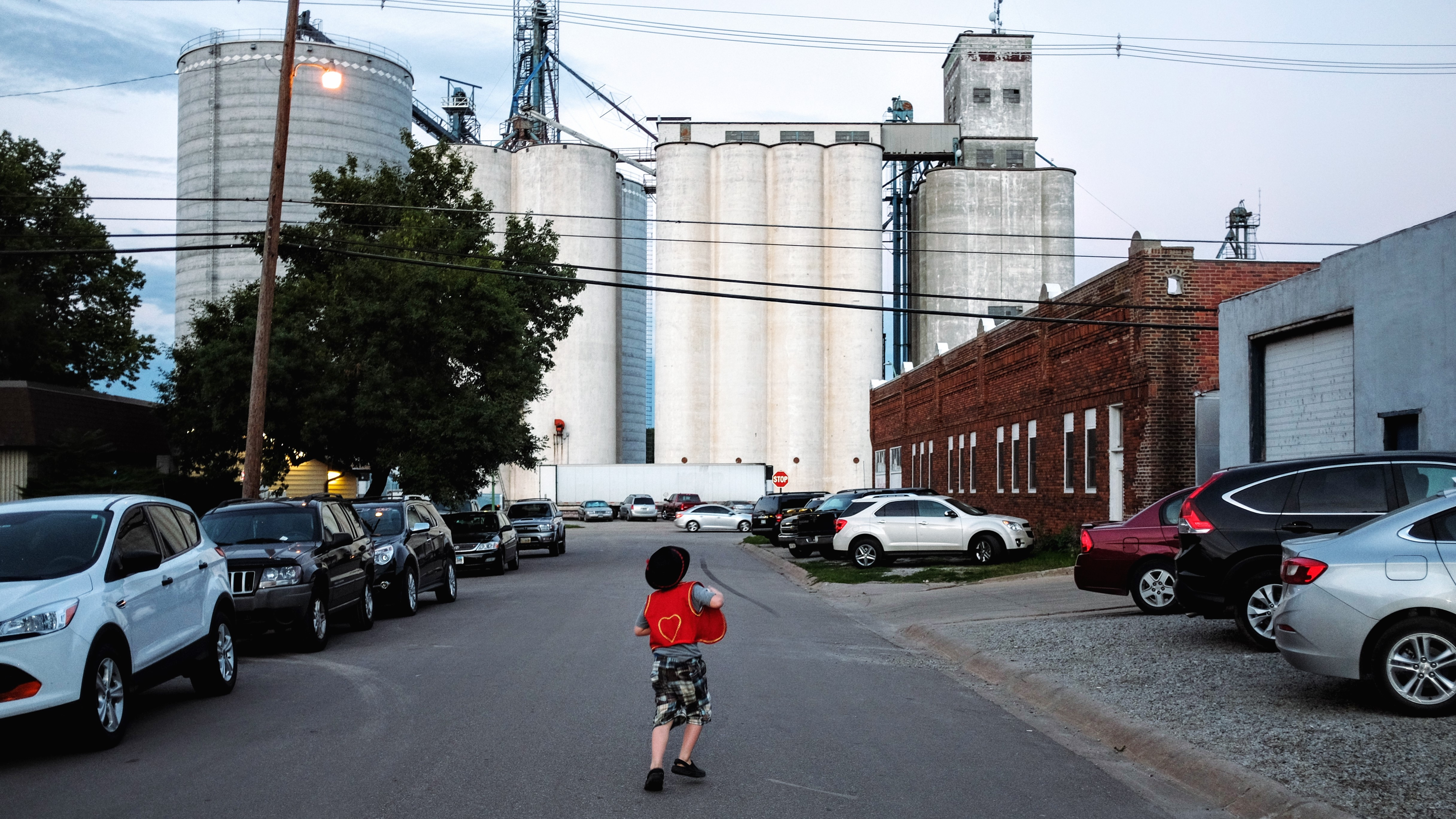
A free daily email with the biggest news stories of the day – and the best features from TheWeek.com
You are now subscribed
Your newsletter sign-up was successful
Should America's kids be sent to work? NBC News reports that Sens. Alex Padilla (D-Calif.) and John Hickenlooper (D-Colo.) have sent letters to the CEOs of 27 companies asking about their compliance with the nation's child labor laws — a query that comes after federal reports of a 69 percent increase in the number of kids found working in violation of those rules. The letters went to high-profile companies including General Mills, J. Crew, and Target.
But the inquiry comes as state-level lawmakers across the country "are invoking a widespread labor shortage to push bills that would weaken long-standing child labor laws," Axios reports. Arkansas Gov. Sarah Huckabee Sanders (R) in March signed a bill loosening her state's barriers to child labor, allowing teens as young as 14 to work without obtaining special permits. "The governor believes protecting kids is most important, but this permit was an arbitrary burden on parents to get permission from the government for their child to get a job," said a spokesperson for Sanders.
That effort has generated a pushback of its own, The Guardian reports. "It's just crazy to me that we are re-litigating a lot of things that seem to have been settled 100, 120 or 140 years ago," says Charlie Wishman, president of the Iowa AFL-CIO, adding: "Child labor law is there to make sure that kids are working in age-appropriate work activities or occupations that are appropriate for their age."
The Week
Escape your echo chamber. Get the facts behind the news, plus analysis from multiple perspectives.

Sign up for The Week's Free Newsletters
From our morning news briefing to a weekly Good News Newsletter, get the best of The Week delivered directly to your inbox.
From our morning news briefing to a weekly Good News Newsletter, get the best of The Week delivered directly to your inbox.
What are commentators saying?
It's easy to see why employers like young workers, Jessica Martinez and Marcy Goldstein-Gelb write at The Progressive. "With less information, less power, and fewer options, they are easier to exploit." There are good reasons to keep kids out of the workplace: They're more prone to injury, and they usually end up falling behind in their education as well. That means it is urgent "to enforce the child labor laws that already exist and push back forcefully against any attempts to weaken them."
"Most successful adults began working as teenagers," the Washington Examiner editorializes. Those youngsters learned valuable life lessons about how to "work, earn, and be responsible for making their own way in life." Today's teenagers, meanwhile, spend too much time on social media while doing "too little growing up." Working lets them share in their responsibility to pay for college, and can even let them get a head start on saving for retirement. But ultimately, the question is one of parents' rights: "If parents believe their 14-year-old is ready to work a part-time job, the government has no business intervening."
But the debate isn't really about teens, Helaine Olen writes at The Washington Post. "It is part of an ongoing campaign to roll back worker protections. While child labor advocates are "draping their appeals in the language of parental rights" that's actually disingenuous: The real goal is to reduce wages for employers under the guise of expanding opportunities. The result hurts young people. "We should — if anything — be putting tighter curbs on employing high school students."
What's next?
Iowa may be the next battleground. Legislators there are considering a bill that would let teens participate in "work-based learning programs" that let them "work hazardous jobs, such as in meat packing factories and mines," Siouxland News reports. The bill would also expand the hours teens can work — from 7 p.m. to 9 p.m. — and allow 16- and 17-year-olds to serve alcohol with a parent's permission. The Des Moines Register reports the effort has the support of 50 percent of Iowans.
A free daily email with the biggest news stories of the day – and the best features from TheWeek.com
If states do relax their child labor laws there are some safeguards still in place. "States will still have to comply with federal regulations, which sets standards for the types of jobs minors can work," Axios points out. But critics are skeptical. "Relying on the federal system to protect children from exploitative work is a dubious proposition," Ellen Ioanes writes at Vox. Recent reports of child labor law violations suggest "the federal system has failed the most vulnerable children."
Using child labor may not always be a winning proposition for big companies. NBC News reports that PSSI, a slaughterhouse cleaning company that was found illegally employing 100 children in dangerous jobs, recently hired a new CEO and launched a $10 million fund to fight … child labor. The company says it did not knowingly hire the kids, but says: "Regardless of the reason [the violations] occurred, however, it is our responsibility to fix the problem."
Joel Mathis is a writer with 30 years of newspaper and online journalism experience. His work also regularly appears in National Geographic and The Kansas City Star. His awards include best online commentary at the Online News Association and (twice) at the City and Regional Magazine Association.
-
 How the FCC’s ‘equal time’ rule works
How the FCC’s ‘equal time’ rule worksIn the Spotlight The law is at the heart of the Colbert-CBS conflict
-
 What is the endgame in the DHS shutdown?
What is the endgame in the DHS shutdown?Today’s Big Question Democrats want to rein in ICE’s immigration crackdown
-
 ‘Poor time management isn’t just an inconvenience’
‘Poor time management isn’t just an inconvenience’Instant Opinion Opinion, comment and editorials of the day
-
 Ski town strikers fight rising cost of living
Ski town strikers fight rising cost of livingThe Explainer Telluride is the latest ski resort experiencing a patroller strike
-
 What will the US economy look like in 2026?
What will the US economy look like in 2026?Today’s Big Question Wall Street is bullish, but uncertain
-
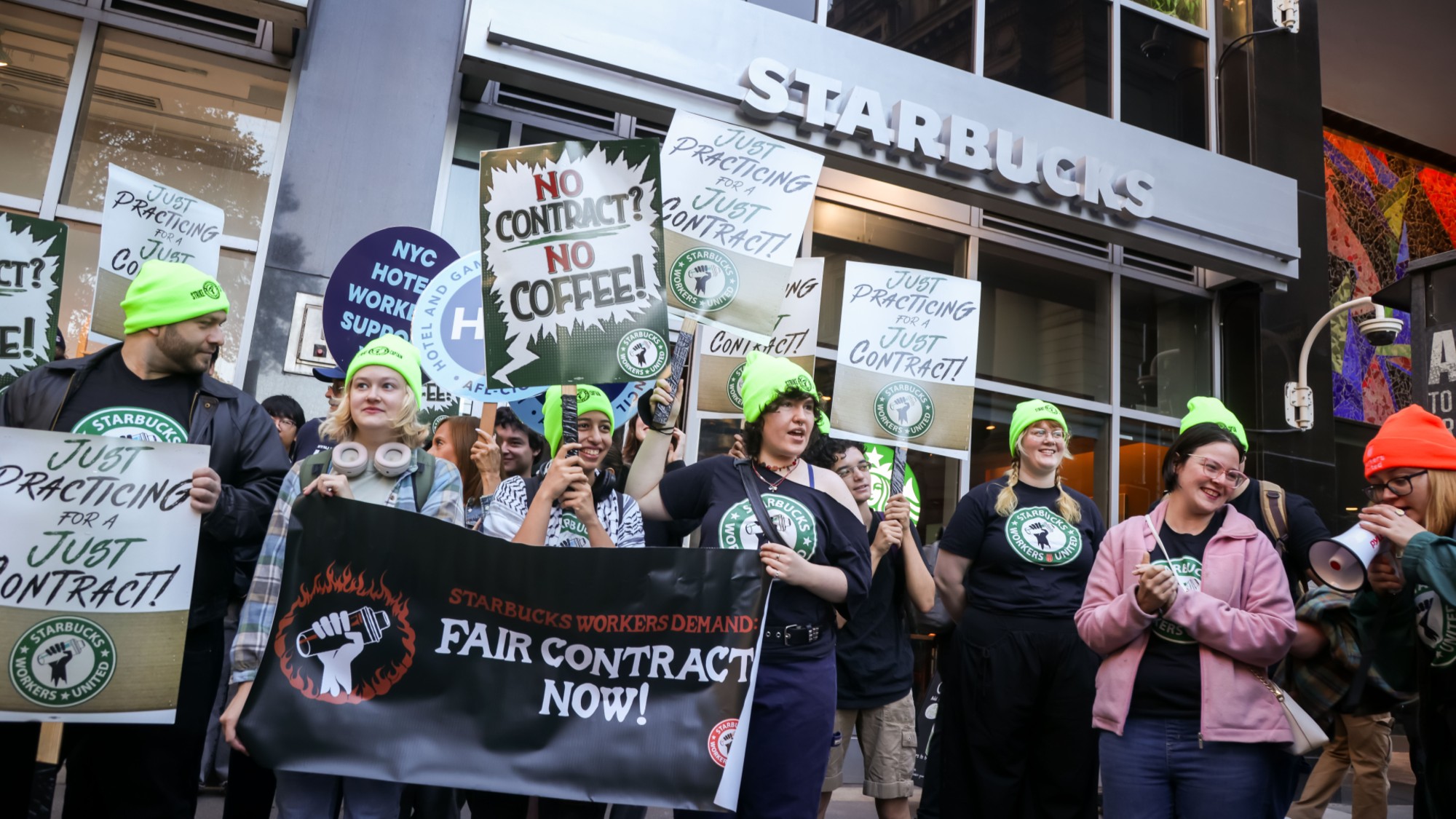 Starbucks workers are planning their ‘biggest strike’ ever
Starbucks workers are planning their ‘biggest strike’ everThe Explainer The union said 92% of its members voted to strike
-
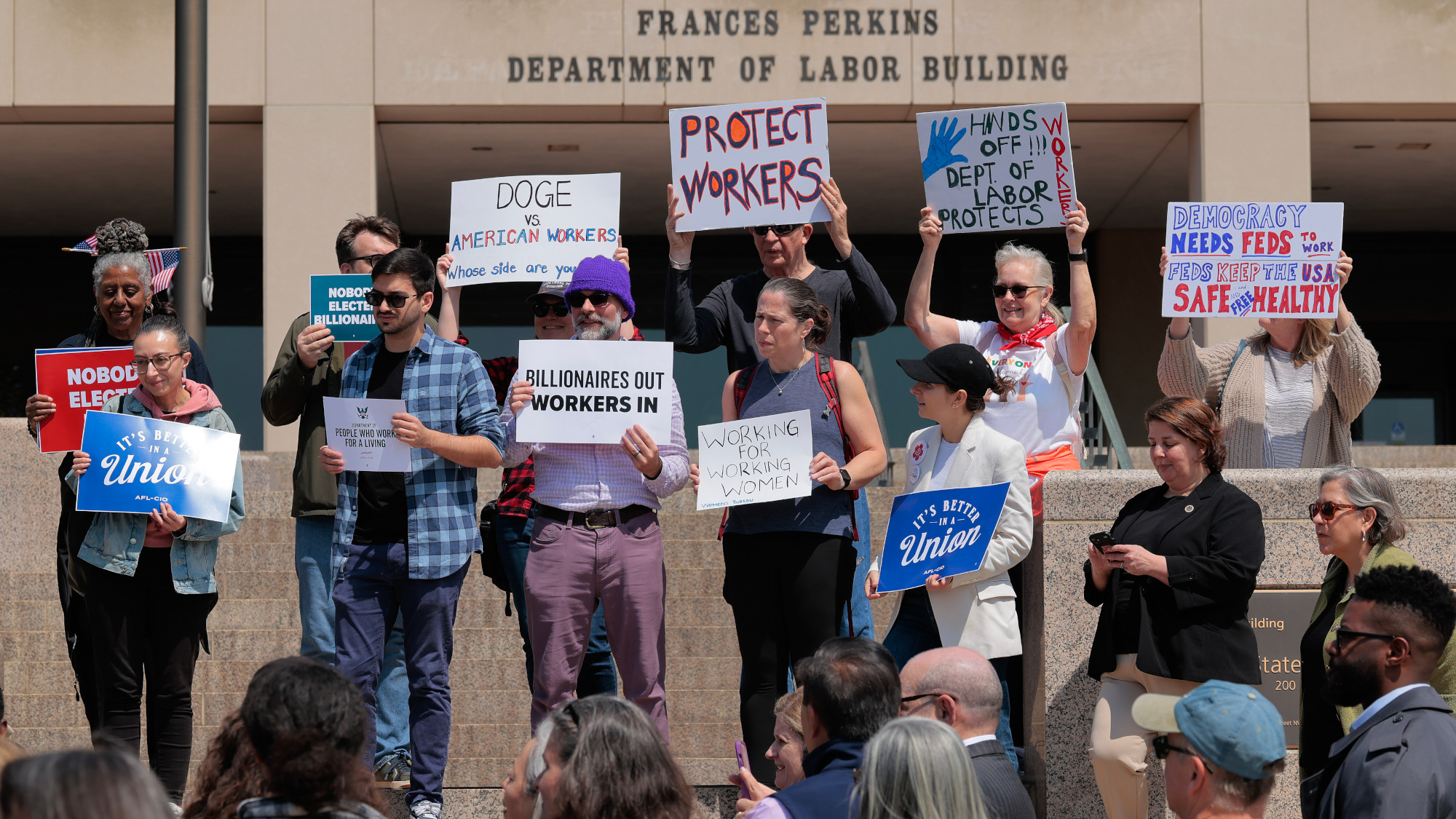 Labor: Federal unions struggle to survive Trump
Labor: Federal unions struggle to survive TrumpFeature Trump moves to strip union rights from federal workers
-
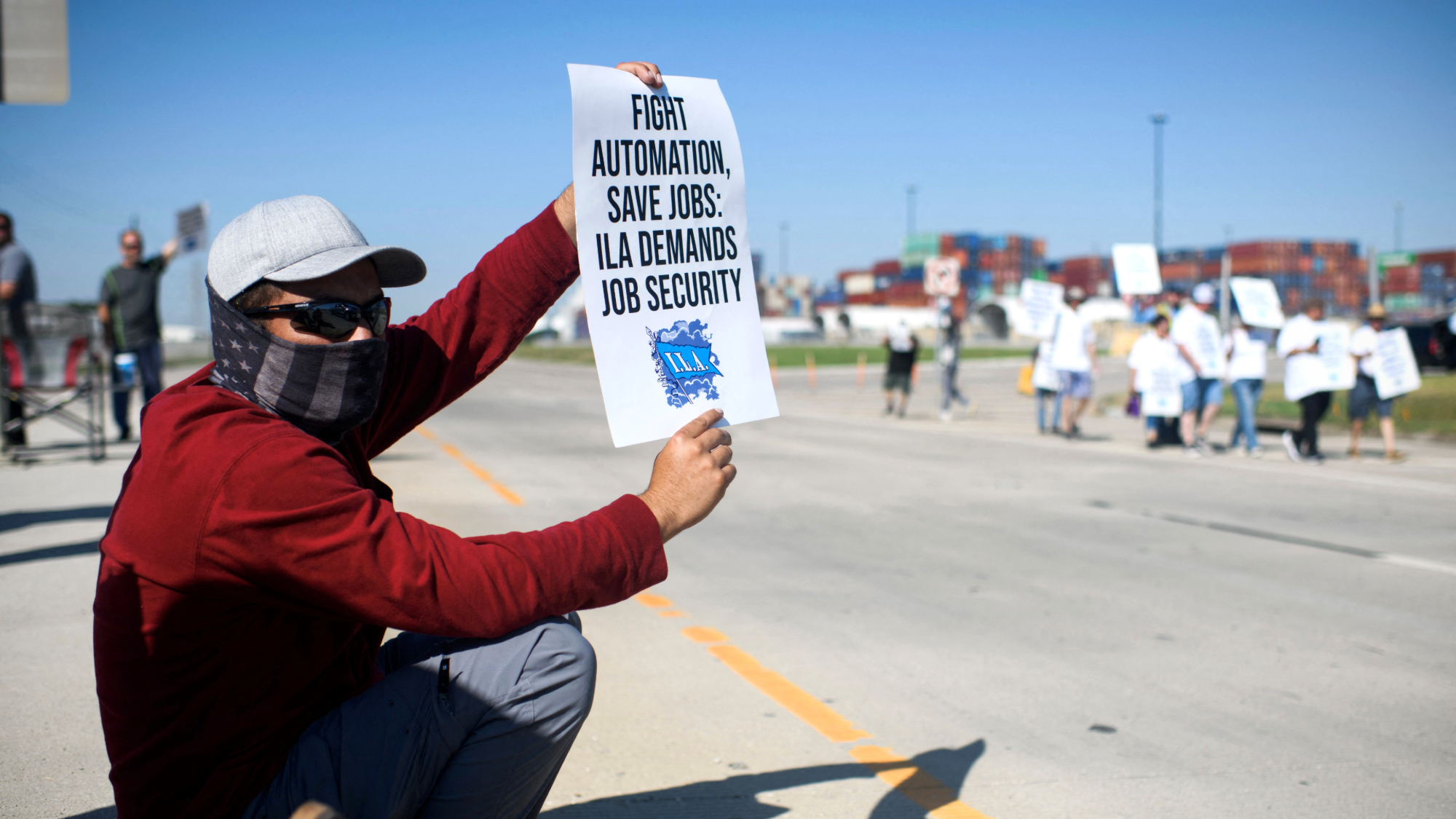 US port strike averted with tentative labor deal
US port strike averted with tentative labor dealSpeed Read The strike could have shut down major ports from Texas to Maine
-
 Boeing machinists reject deal, continue strike
Boeing machinists reject deal, continue strikeSpeed Read The rejection came the same day Boeing reported a $6.2 billion quarterly loss
-
 The pros and cons of globalization
The pros and cons of globalizationPros and Cons Globalization can promote economic prosperity but also be exploitative
-
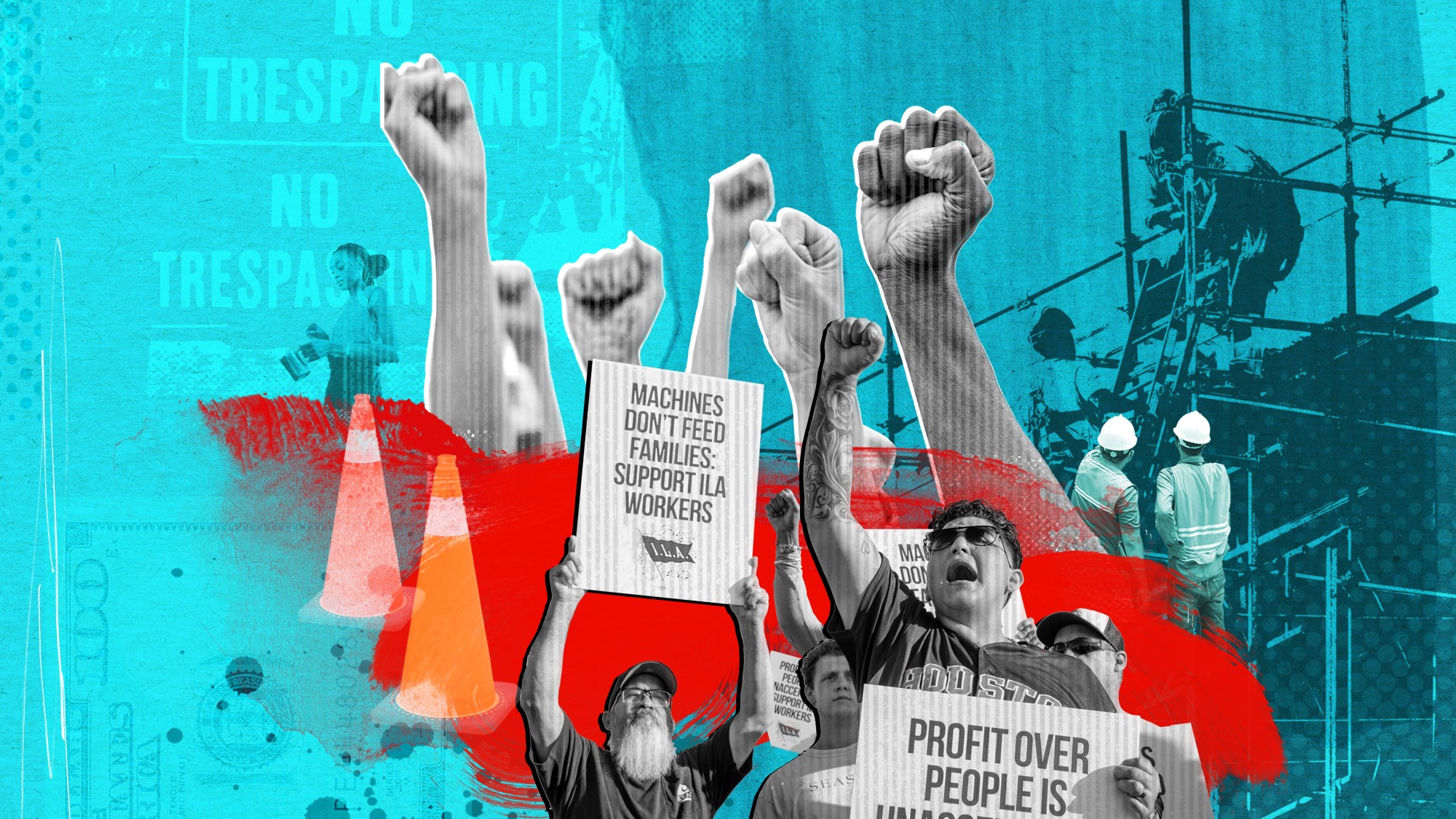 The pros and cons of labor unions
The pros and cons of labor unionsPros and Cons Companies throughout the country continue to push for unionization
